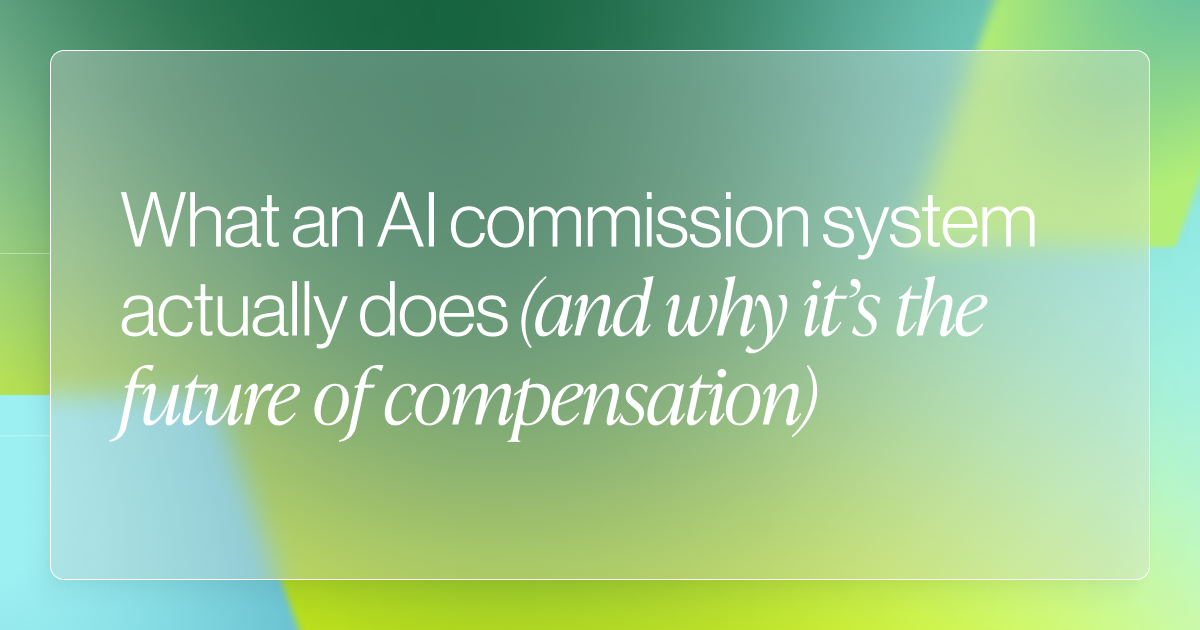Research Report: The 2024 State of Incentive Compensation Management
Managing incentive compensation can be a tough and often thankless job. The opportunities for upleveling ICM to make a real impact on revenue by better aligning incentives with business priorities and objectives are endless, and yet professionals today are mired in the mundane – stuck wading through manual to-dos instead of realizing the true potential of program optimization on motivation and performance.
Additionally, when those managing incentive compensation are bogged down with administrative burdens, the experience for GTM (Go-to-Market) reps suffers as well, as manual processes and a lack of full program ownership on the admin side can result in miscalculations, delayed responses to inquiries, and – ultimately – mistrust, which detracts from the sought-after end goal – business results.
With this in mind, we set out to shine a light on the gap between the current state of incentive compensation management as well as the ideal state of ICM, partnering with market research experts to survey 200 US compensation leaders and identify key behaviors and trends.
And today, we’re excited to share the results by publishing our inaugural State of Incentive Compensation Management Report, which shares robust insights about core challenges and opportunities, including:
Identifying the Right Mix of Tactical vs. Strategic
Just one-third of survey respondents said they are aligning their incentive programs with organizational goals and objectives, exposing the need for companies to shift the focus of incentive compensation management from day-to-day to-dos more efficiently scaling programs, optimizing spend, and motivating reps.
Despite incentive compensation professionals reporting that they’re mostly satisfied with many aspects of their programs, there is still a lot of manual work being done, and a desire to shift toward more strategic work. In fact, just 25% of those surveyed feel they can currently dedicate the right split between tactical and strategic tasks, with 42% wanting to do more strategic tasks.
Motivating With Incentives to Efficiently Drive Growth
Aligning incentives with specific objectives such as less customer turnover, more closed-won deals in up-market segments, or higher quality lead generation is the first step toward driving efficient growth – but our survey found that most compensation plans are still based just on new business revenue.
Only 17% of respondents pay commissions on account renewals and just one-quarter on upsells – which represents an opportunity to incentivize post-sales success – and only 21% pay commissions on overall team performance, a metric that can motivate teams to work better together instead of acting more as lone wolves.
As incentive compensation programs continue to expand to new functions and business units, organizations should be mapping incentive programs to desired business outcomes and motivating behaviors that go beyond the most traditional factors.
Looking For Ways to Improve Measurement
Measuring plan impact, reporting on performance, and surfacing key data points for analysis are essential for strategic incentive compensation planning and execution. Unfortunately, less than 40% of respondents are actively reporting on how programs are performing, only 35% make changes to reflect changing market conditions, and 40% are optimizing their program based on insights.
Additionally, as incentive compensation strategies become more complex and organizations shift towards more strategic approaches, AI and automation are becoming necessary for success. While 91% of the respondents already report using some form of AI within their day-to-day incentive compensation management workflows, continued investment will better equip organizations to automate manual processes, scale programs without additional spend, and become more efficient and strategic in their approach to ICM.
Download the full report to learn more about how forward-looking organizations are approaching incentive compensation, including best practices for leveraging AI and automation.
.svg)


.png)





